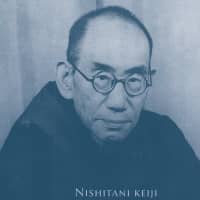Kitaro Nishida (1870-1945) is arguably the most important modern Japanese philosopher. This volume — first published in Japanese in 1985 — brings together diverse essays about both him and his philosophy of "absolute nothingness" written by his former pupil Keiji Nishitani (1900-90), another major figure in Japanese philosophy.
Nishida Kitaro: The Man and His Thought, by Keiji Nishitani, Translated by James Heisig and Seisaku Yamamoto.
272 pages
CHISOKUDO PUBLICATIONS, Philosophy.
In his portraits of Nishida, we discover a man described by family as difficult to live with, a bad-tempered melancholic who as a young man turned to Zen for solace, read widely and gifted to a friend a piece of calligraphy that read, "To risk everything, win or lose."
Nishitani insightfully observes that, on the world stage, philosophy in the early 20th century had suffered major incursions into its traditional terrain by the upstart disciplines of psychology and sociology, which minutely dissected our ways of interacting with the world around us.
With the surprise, risk-all stroke of a master tactician, Nishida attempted to hit back by concentrating his thinking on the search for a unifying principle of all existence that he identified as "pure experience," the melting away of self and other before the rationalizing of self intervenes.
Nishitani observes that at the heart of all great philosophers is an ability for daring intuition. With its description of Nishida's rear maneuver on the "objectified self," this volume illustrates how philosophy is just as much a matter of cunning strategy and courage as it is of dry theorizing.



















With your current subscription plan you can comment on stories. However, before writing your first comment, please create a display name in the Profile section of your subscriber account page.